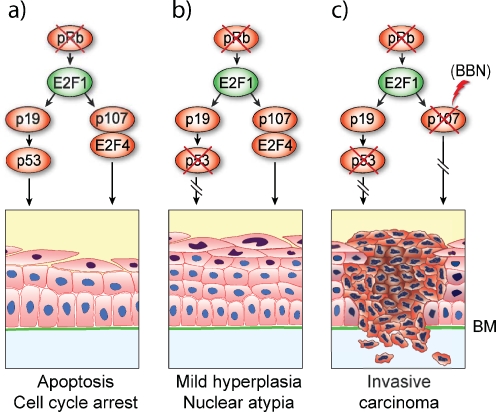Fig. 2.
Collaborative effects between pRb family proteins and p53 in invasive urothelial tumorigenesis. a Ablation of pRb specifically in urothelium leads to E2F1 over-expression which in turn up-regulates the p53 pathway and pRb family protein p107 along with transcriptional repressor E2F4. These compensatory urothelial defenses cause urothelial cells to undergo cell-cycle arrest and apoptosis. b Additional ablation of p53 in urothelial cells lacking pRb effectively blunted apoptotic response, resulting in late-onset hyperplasia and nuclear atypia. c Treatment of urothelial cells lacking both pRb and p53 with bladder carcinogen BBN down-regulates p107 and triggers invasive urothelial tumorigenesis. This model emphasizes the collaborative effects among pRb family proteins and p53 in invasive urothelial tumor initiation. This figure was reprinted with permission from Ref. 48

